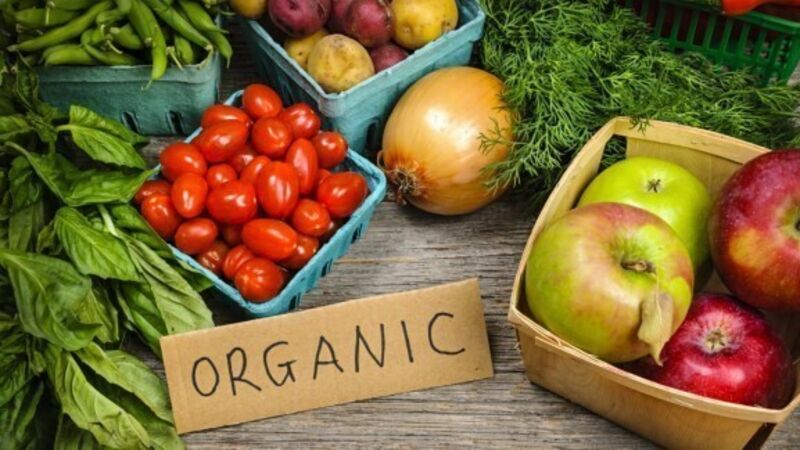Teagasc advice: Six steps towards organic farming

If you can answer yes to some or all of the following questions, then you should consider switching to organic production, say Teagasc experts in their new publication, Organic Farming — A Step-by-Step Guide to Conversion.
Is your current stocking rate below two livestock units per Ha?
Can your animal housing be modified to incorporate a bedded lying area?
Are you considering entering GLAS?
Can you incorporate a grass/clover break into your rotation?
Do you have a source of farmyard manure/slurry on or near your own farm?
Are you interested in achieving gross margins of €1,000 per ha for cereal production?
These questions are .
Get acquainted with the adjustments required by attending farm walk(s), talking to other organic farmers and or contacting a local advisor.
Familiarise yourself with the Organic Standards.
A major factor distinguishing organic farming from other approaches to sustainable farming is the existence of internationally acknowledged standards and certification procedures.
These standards have been developed to provide organic producers with consistent, clear rules as to how organic food should be produced.
A two-year conversion period is required before a farm is given organic status.
Some of the main requirements are listed here.
Soluble mineral fertilisers are prohibited, but some such as lime and phosphate are permitted.
Clover and other legumes supply nitrogen.
The balance between fertility building crops, such as grass/ clover ley and exploitative crops such as cereals and potatoes, is critical in a tillage rotation.
Most manufactured agro-chemicals (for example, herbicides) are prohibited.
The highest standards of animal welfare are obligatory.
Bedding, good ventilation and generous floor space are required for housed animals.
Ruminant stock must be fed a diet which is at least 60% roughage.
Tillage crops should be considered as a cost effective alternative to buying in concentrates and bedding.
Routine preventative treatment of healthy animals is not allowed, with a focus on prevention rather than cure.
towards organic farming is to choose an Organic Certification Body and get an application pack.
The Organic Certification Bodies (OCBs) provide an inspection and certification service for all organic production units in Ireland.
They have been designated and are regulated by the Organic Unit of the Department of Agriculture, Food and Marine, and are responsible for upholding the organic standards as defined by the EU.
The OCB sends an information pack on request.
The pack is tailored to the producers’ needs, and will generally contain information on the application and conversion process, an application form, and a guide to the Organic Standards.
Once the application and conversion plan are received and assessed, an initial inspection will be arranged so that, if successful, an in- conversion licence can be granted.
The OCBs carry out annual inspections of every organic enterprise.
Further information can be sourced from these certification bodies:
* IOFGA (Irish Organic Farmers and Growers Association), 16A Inish Carraig, Golden Island, Athlone, Co Westmeath (090-6433680 or info@iofga.org. Their website is www.iofga.org
* Organic Trust, 2 Vernon Avenue, Clontarf, Dublin 3 (01-8530271 or organic@iol.ie, www.organictrust.ie website.
towards organic farming is to complete a FETAC Course in Organic Production.
A 25-hour ‘Introduction to Organic Production’ course must be completed before acceptance into the Organic Farming Scheme.
For details of courses held nationwide, see the www.teagasc.ie/events website.
towards organic farming is two applications.
First, complete a conversion plan and submit with your application to an OCB. You may choose to prepare the conversion plan whilst attending the compulsory Introduction to Organic Production Course, so that if queries arise, you can address these directly with trainers, who have a wealth of knowledge of the organic production system.
A new Organic Farming Scheme is due to be re-opened shortly.
Watch out for the application deadline for submission to the Organic Unit of the Department of Agriculture, Food & The Marine to obtain payments under the 2015 Organic Farming Scheme.
In previous schemes, the Department required that a business plan accompanied your OFS application; this will not be a requirement under the 2015 scheme.
Consult the Department’s www.agriculture.gov.ie website for more details.
towards organic farming is the conversion process.
When the initial inspection has been carried out, the application approved, and the “in-conversion licence” granted, a period of conversion begins.
Normally two years, this period of conversion allows time for the land and producer to adjust to the organic methods.
During the conversion period, the enterprise must adhere to all the organic standards concerning animal welfare, artificial fertilisers, pesticides and chemicals.
The changes proposed in the conversion plan must be implemented during this period.
After the required conversion period expires, the inspection body may issue organic status to the farmer (unless the conversion period is being extended), which allows the farmer to sell his/her produce as organic.
* www.teagasc.ie/organics website, and you can contact the following Teagasc Organic Specialists.
Dan Clavin, Teagasc, Mellows Dev Centre, Athenry, Co Galway; email: dan.clavin@teagasc.ie
Elaine Leavy, Teagasc, Grange, Dunsany, Co Meath, email: elaine.leavy@teagasc.ie
* Department of Agriculture, Food and Marine Organic Unit, Johnstown Castle Estate, Co. Wexford; www.agriculture.gov.ie/farmingsectors/organicfarming website, telephone 053-9163400 or email to organicunit@agriculture.gov.ie









